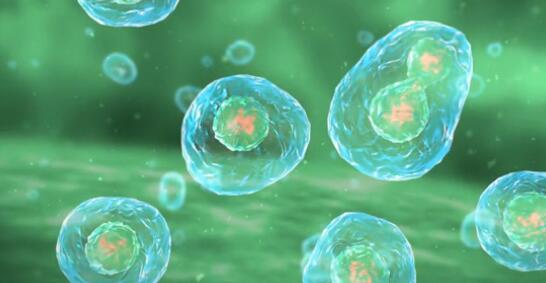Every day, super-tiny cells are waging wars inside of us. These ferocious fighters are too small for us to see without a microscope, but they're capable of overtaking just about any organ in your body. They're cancer cells, and they're actually constantly arising inside of us.
每天,超小的细胞们都在我们体内发动着战争,这些凶狠的战士太小,以至于没有显微镜根本看不到,但它们能够打垮我们体内的一切器官。它们就是癌细胞,这些东西不断在我们体内产生。
Most of the time,our immune system seeks them out and neutralizes them. But it's not always successful. That's because cancer is not simply one disease-it's many. Cancer cells can attack your brain, your liver, your lungs, and a lot of other super important parts of your body. But what about your heart?Heart cancer isn't a thing you hear much about.
大多数时候,我们的免疫系统会将它们找出来干掉。但总会有失手的时候。因为癌症不是一种单纯的病—癌症有许多种。癌细胞能够攻击大脑、肝脏、肺,以及许多其他超级重要的身体部位。但心脏呢?

That's because it-almost...doesn't exist. Most hospitals report fewer than one case of heart cancer per year. So why are tumors on this organ so rare? Well, those cancer cells we were just talking about get their power from their ability to divide and multiply.
心癌似乎极少听说。这是因为这种病——几乎——不存在。大多数的医院一年都未必出现一例心癌病例。那么为何这个器官极少长肿瘤呢?嘛,刚刚我们谈的那些癌细胞,厉害在它们的分化能力和多样性。
Cancerous cells become a problem when they start to divide uncontrollably and take over everything. When they're behaving normally, cells know when to stop replicating based on instructions encoded in their DNA. Cancerous cells just don't get the memo and keep replicating, and then replicating...and then replicating some more.
当癌细胞开始不受控制地分化并统治一切时开始成问题。当它们行为正常时,细胞根据DNA 编码的指令知道何时停止复制。癌细胞缺少这个备注,不停地复制,复制……再复制。
But unlike cells in other organs, our heart cells do almost all of their dividing during fetal development. Sometimes-but not often-tumors can form in fetuses while these cells are still able to divide. Once we're born,though,our heart cells stop dividing. Tumors that might have grown while we were in utero tend to stop growing at this point.
但与其他器官的细胞不同,心脏细胞几乎在胚胎发育时期就分化完了。有时——罕见情况——肿瘤能在胚胎期这些细胞还在分化时形成。出生后,虽然心脏细胞停止了分化。肿瘤可能会在我们尚丰子宫内,停止分化时继续生长。
That's because our hearts are mostly made of muscle cells, which can grow in proportion to our bodies, but they don't multiply the same way that other cells in our bodies do. See, every cell in your body has a chance of becoming abnormal if its DNA is damaged. A few abnormal cells is OK, so long as they're kept under control by our immune system.
由于心脏几乎完全由肌肉细胞组成,它可以根据身体比例生长,但它们不会像身体中的其他细胞那样繁殖。如果DNA出错,体内的一起细胞都有长坏的可能。少量异常细胞没什么问题,只要它们处在免疫系统的控制之下就行。
The problem arises when these cells start to divide uncontrollably,and form lumps or growths. Some of these growths might be benign, but...sometimes they aren't. But since very little cell division happens in the heart, problem cells are much less likely to turn into a cancerous growth.
当这些细胞开始不受控制地分化,形成肿块或肿瘤时,问题就来了。有些肿瘤可能是良性的,但...有时并不是。但是由于心脏很少有细胞分化,问题细胞就相对不可能变成恶性肿瘤。
So yes, you can get heart cancer. But it's extremely rare,and either begins elsewhere in the body and spreads to the heart through the bloodstream, or it affects babies who got the disease in utero. Which means:if you're old enough to be watching this video, you probably have one less thing to worry about.
是的,人还是有可能得心癌的。但是非常罕见,要么是从身体其他地方出现通过血液系统扩散至心脏,要么就是在子宫内时患上的。也就是说:看这视频时如果你岁数够大,那就可以少当心一件事了。













